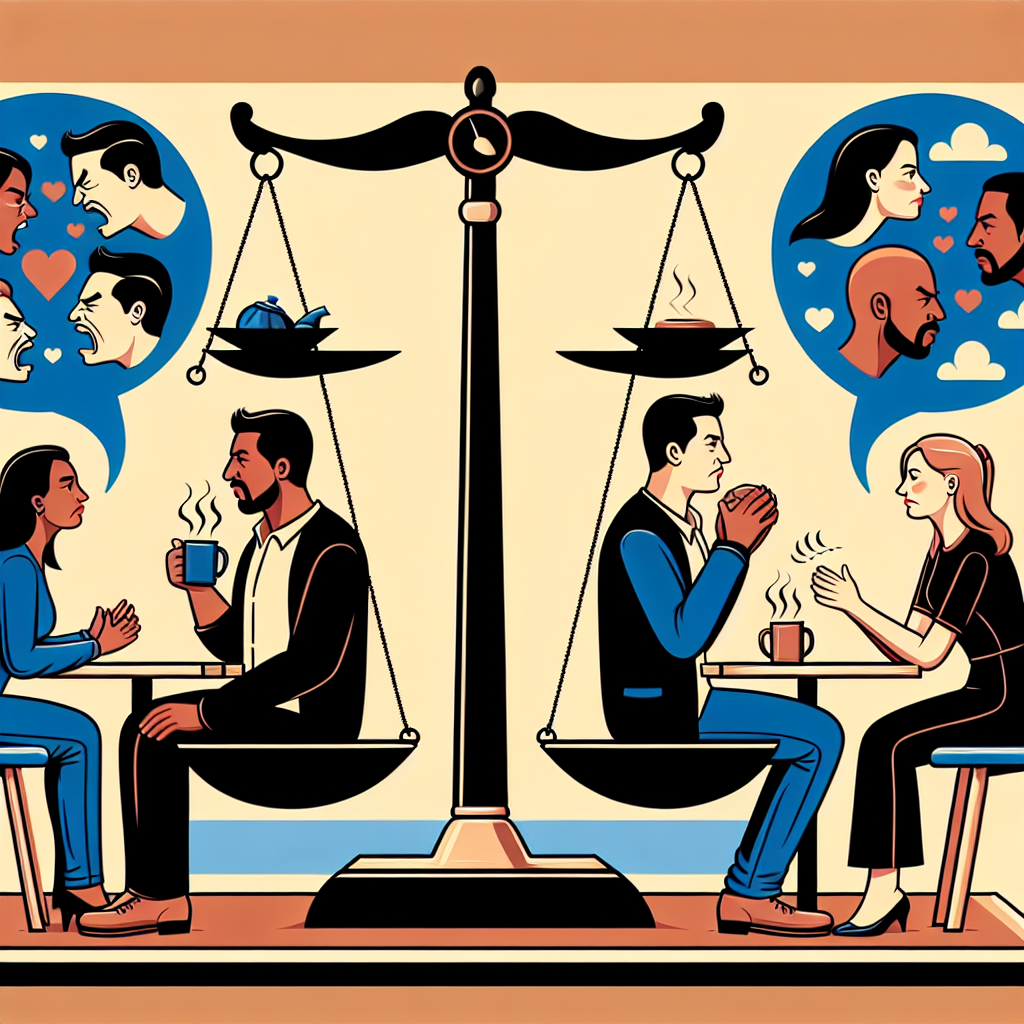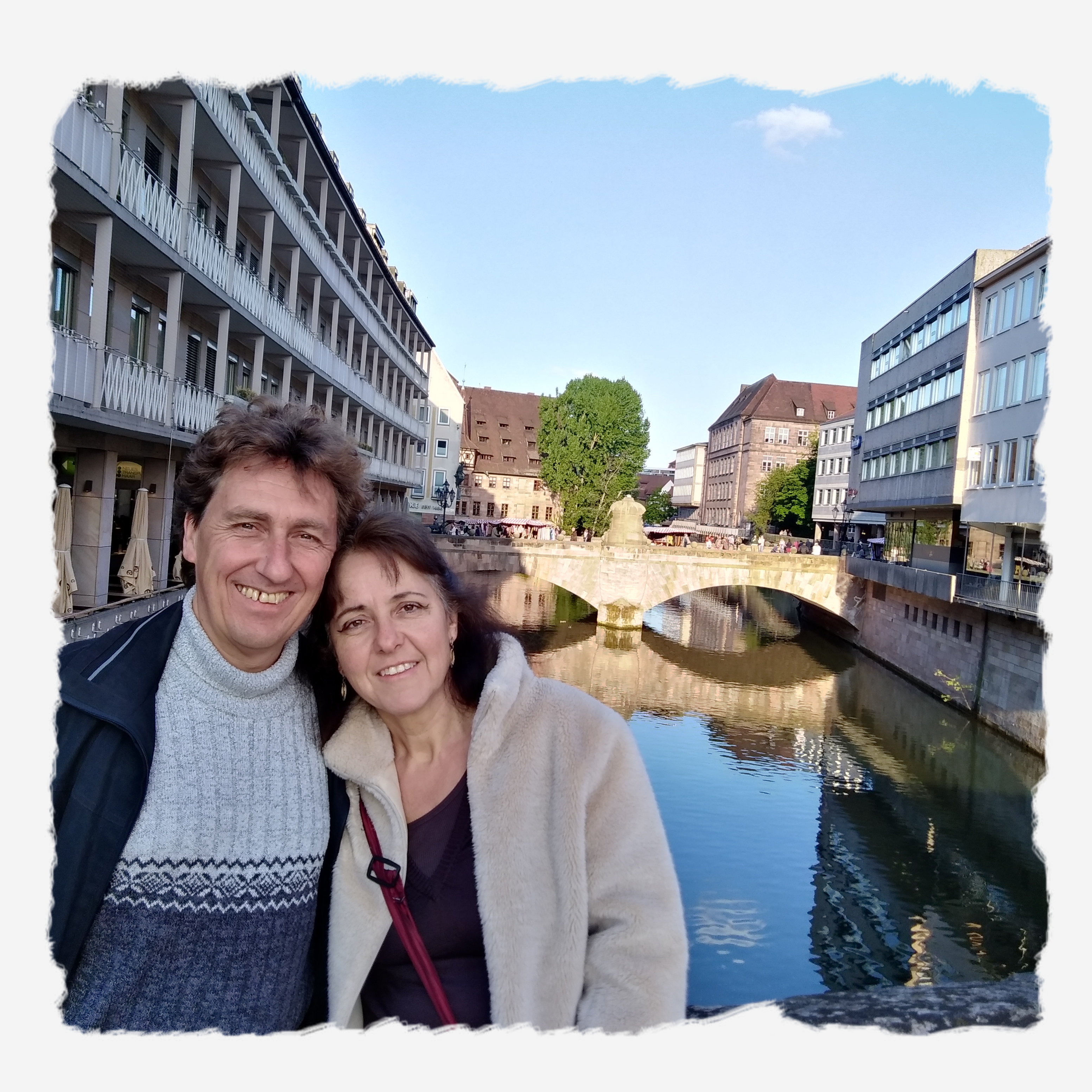Reserve your spot now!
Navigating relationship conflict can be a daunting task.
It's a natural part of any partnership, yet it often leaves us feeling drained and disconnected.
Here you learn how to get trust back after cheating.
You have to know how to get trust back after chating. Understanding the dynamics of conflict resolution in relationships is crucial. It's not just about winning an argument, but about fostering growth, understanding, and deeper connection.
This article aims to provide you with effective strategies on how to handle conflict in a relationship. It will guide you through the process of managing disagreements, expressing needs, and finding common ground.
We'll explore the importance of communication, emotional intelligence, and setting healthy boundaries. We'll also delve into when it might be necessary to seek professional help.
Whether you're in a romantic relationship, a therapist, or simply interested in improving your interpersonal skills, this guide is for you.
Join us as we navigate the complex world of relationship conflict and discover how to turn these challenging moments into opportunities for growth and connection.
Relationship conflict is inevitable. It arises when two individuals with different needs, perspectives, and experiences connect. Recognizing this can transform how we perceive disagreements. Rather than seeing conflict as a threat, view it as an opportunity for understanding and growth.
The goal in any conflict should not be to "win" but to navigate differences constructively. Resolving conflicts effectively enhances relationship quality and promotes deeper connections. Clear communication, empathy, and compromise are vital components of successful conflict resolution in relationships. These elements provide the foundation for tackling conflict with maturity and compassion.

In relationships, conflict often emerges from unmet needs and expectations. These can come from various sources, such as communication gaps or personal insecurities. Unaddressed conflicts can strain the bond, leading to resentment and disconnection over time.
However, with open dialogue, partners can address these tensions and work towards solutions. Acknowledging the presence of conflict and dealing with it proactively can pave the way for enhanced understanding and intimacy.
Conflicts often begin with misunderstandings or mismatched expectations. Everyday stressors, such as financial concerns or time constraints, can exacerbate tensions. Feeling undervalued or unappreciated by a partner also frequently leads to discord.
Additionally, personal habits or lifestyle differences may ignite friction between partners. Small annoyances can accumulate, leading to significant disagreements if not addressed. It's crucial to understand the root causes of these conflicts to mitigate their impact.
Identifying common triggers can help couples prepare better responses. This preparation can promote healthier interactions and prevent minor issues from escalating into major disputes. A deeper awareness of the causes enables couples to navigate their differences more effectively.

Effective communication is crucial in resolving relationship conflict. It's the bridge that connects understanding with action. Through communication, couples can clarify misunderstandings and convey their needs clearly.
Poor communication often leads to assumptions, which fuel disputes. By honing their communication skills, partners can create a space of mutual respect and understanding. This environment is essential for addressing conflicts positively.
Clear communication involves honesty and vulnerability. Openly sharing feelings without fear of judgment strengthens connections. When partners express themselves authentically, they reduce chances of recurring misunderstandings.
Moreover, communication isn't just about talking but also listening. It requires effort from both parties to be attentive and responsive. This mutual participation enhances the effectiveness of conflict resolution in relationships.
Active listening is a key component of healthy communication. It involves fully focusing on the partner's words and emotions. This level of attention demonstrates respect and empathy.
Expressing needs without blaming fosters a constructive dialogue. Using "I" statements helps articulate personal feelings clearly. This approach reduces defensiveness and promotes understanding.
When both partners feel heard, they can address their needs more effectively. Thus, active listening and honest expression pave the way for resolving conflicts amicably.
Emotional intelligence plays a significant role in managing relationship conflicts. It involves recognizing and understanding one's own emotions and those of the partner. This awareness helps in responding to situations thoughtfully rather than reactively.
Emotionally intelligent individuals can maintain calm during conflicts. They can empathize with their partner's perspective, which eases tensions. This skill is crucial for couples seeking to resolve conflicts constructively.
Moreover, high emotional intelligence enhances communication and strengthens relationships. It encourages partners to approach each other with patience and compassion. As a result, they can navigate disagreements with a focus on growth and harmony.
Addressing relationship conflicts requires well-thought-out strategies. Understanding the core issues is a first step. Couples should aim to tackle disagreements through cooperative methods.
Identifying common goals can guide partners toward solutions. Together, they can develop an action plan that fosters understanding. This collaborative effort builds trust and aligns interests.
Approaching conflicts with a mindset for resolution rather than victory is vital. This shifts focus from the problem to potential outcomes. Emphasizing cooperation minimizes friction and facilitates healing.
Establishing ground rules for discussions can prevent chaos. These rules set boundaries that guide interactions constructively. They help partners feel safe and respected.
Listening without interrupting is essential. It ensures that both parties can express themselves completely. This courtesy fosters a balanced exchange where all voices are valued.
Timing is crucial in handling conflicts. Discussing issues when emotions are raw can be unproductive. Choosing the right moment can enhance receptivity.
Taking breaks during heated discussions allows emotions to cool. It prevents regrettable exchanges that may harm the relationship. Temporary pauses enable clearer thinking and rational dialogue.
Negotiation and compromise are art forms in resolving conflicts. Effective negotiation requires open-ended questioning. It involves seeking solutions where both win.
Compromise shouldn't mean losing one's values. It is about finding a middle path that acknowledges everyone's needs. Respect and flexibility are key in this process.
Partners should aim for mutual satisfaction over simple concessions. Practicing empathy leads to thoughtful compromises. When each partner feels valued, resolutions become opportunities for growth.
Overcoming conflicts can lead to significant growth. When handled constructively, disputes provide a chance to deepen understanding. This fosters a stronger, more resilient bond.
Successfully resolving issues cultivates trust. Partners learn more about each other's needs and viewpoints. This shared experience enhances emotional intimacy and fortifies the relationship.
Viewing conflicts as gateways to connection transforms their impact. Instead of seeing them as setbacks, couples can regard them as steps toward growth. This perspective encourages continuous improvement in the relationship.
Conflicts hold valuable lessons for both partners. Each disagreement offers insights into personal and shared dynamics. Analyzing these moments helps prevent similar issues.
Reflecting on conflicts promotes self-awareness. Individuals learn how their behaviors and reactions contribute to issues. This knowledge paves the way for positive change and healthier interactions.
Recognizing achievements in conflict resolution is important. Celebrating small victories fosters a sense of accomplishment. It reminds couples of their ability to overcome challenges together.
Acknowledging progress reinforces commitment to growth. It highlights the strength and efforts of both partners. Celebratory moments create positive memories, reinforcing the foundations of the relationship.
Sometimes, conflicts persist despite best efforts. If disputes repeatedly circle back without resolution, it might be time to seek professional help. A neutral third party can provide fresh perspectives.
Therapists and counselors offer valuable guidance. They help couples navigate complex emotions and communication barriers. Recognizing when external support is needed can make a significant difference in a relationship's health and happiness.
Navigating relationship conflict is an ongoing journey. Each resolved conflict strengthens the bond, contributing to a healthier partnership. Embracing these challenges as growth opportunities can lead to deeper understanding and connection.
Remember that conflict resolution skills improve with practice. Over time, couples can develop a toolkit of strategies that suit their unique dynamics. The ultimate goal is a harmonious relationship where both partners feel heard, respected, and valued.
Reserve your spot now!
Over the years, the infatuation often gives way to living side by side as partners. In everyday life with children, a career and different leisure activities, you lose the connection.


Susana and Markus Kessler have been in a happy relationship for more than 25 years. To ensure that their partnership continues to grow, they have repeatedly attended coaching and training sessions on all aspects of their relationship, including communication, money management and parenting.
They have built up several businesses and have become financially free as a result. They have also attended countless coaching and training sessions for their business on sales, marketing, social media, business development and investing.
They have been trained coaches since 2015 and are passionate about passing on their knowledge. Their coaching approach is practical, solution-oriented and individually tailored to the needs of their clients. They offer comprehensive support in the areas of personal development, relationship building and maintenance, financial education and entrepreneurial growth.
Susana and Markus offer various coaching formats to ensure maximum flexibility for their clients. These include:
With their many years of experience and in-depth knowledge, Susana and Markus Kessler help people to strengthen their relationships and make the most of their lives and opportunities.

Our knowledge comes from 25 years of relationship experience as well as training and further education with the world's best in their field, including the NLP Academy Switzerland, J.T. Foxx, T. Harv Eker, Landmark Wordwide, John Kehoe, Maja Storch and many more.

Every partnership is different. We recognize your individual personalities and work with your own resources to support you perfectly on your path to the perfect partnership.

Anyone who talks about their relationship deserves absolute discretion and an atmosphere of trust. That's why we offer you an empathic environment in which you feel safe and secure and can speak openly with each other.